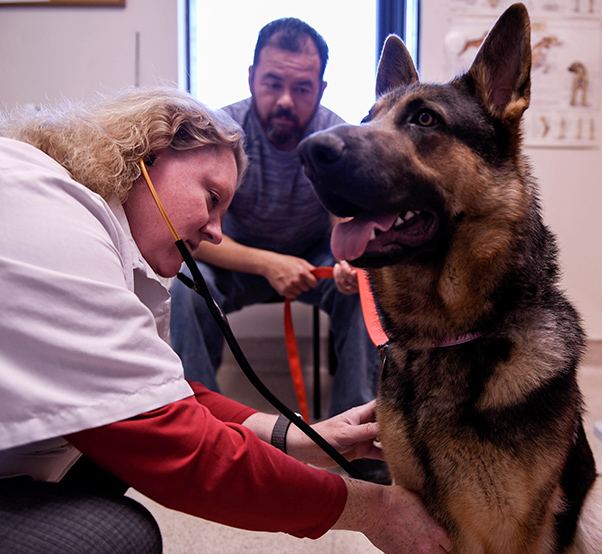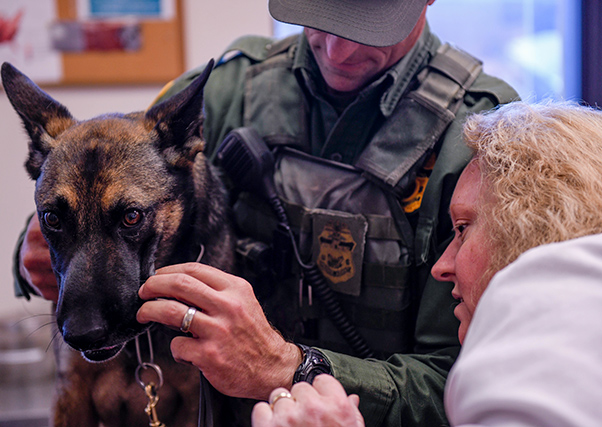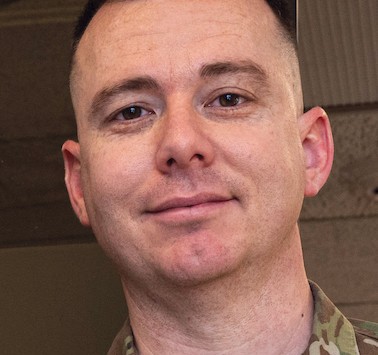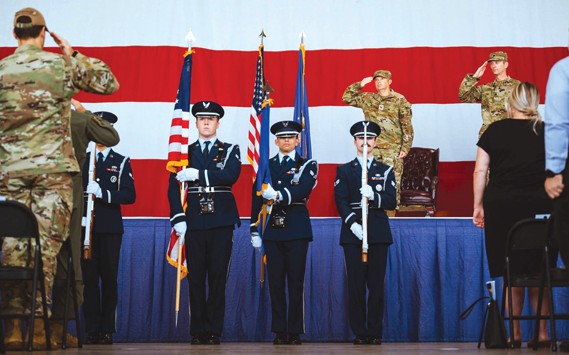Owning a pet can lower cholesterol, blood pressure and increase fitness according to a Centers for Disease Control and Prevention study “Healthy Pets, Healthy People.” However, to help keep the owner healthy, the pet has to remain healthy as well.
The Luke Air Force Base, Ariz., Veterinary Services clinic helps maintain the health of active-duty members’ and retirees’ pets by performing wellness exams, vaccines, heartworm tests and basic sick call procedures.
Surgical and x-ray procedures aren’t available at the clinic due to limited work space. Although, allergy-related ear infections and skin issues are the most common cases seen at the clinic.
The vet clinic has multiple missions to maintain the health of man’s best friend — cats included.
“The primary mission is to take care of the military working dogs,” said Nicole Avci, Luke AFB Veterinary Services clinic officer in charge. “The second mission is actually food for facilities on base. We inspect off-base facilities of commercial establishments to make sure they’re in compliance with our regulations.”
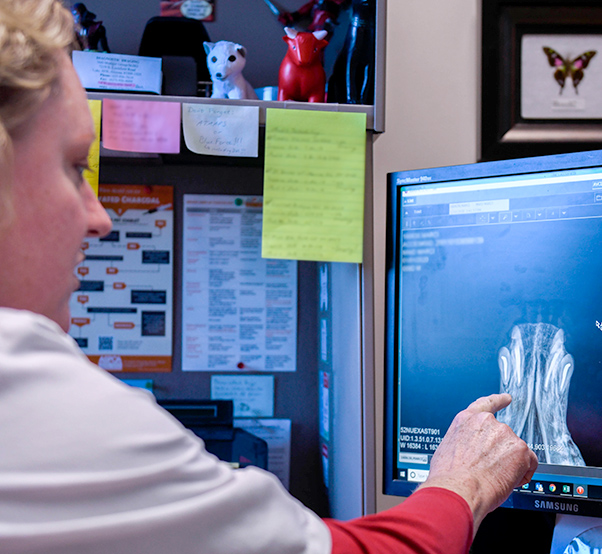
Clinic professionals inspect two to three establishments a month for the cleanliness and wholesomeness of the food. If the establishments fail the inspection, they are no longer allowed to send deliveries to the base or the Department of Defense.
“Our next mission is control of zoonotic diseases [examples include rabies and the swine influenza], which are diseases that can be transmitted from animals to humans,” said Avci. “We take care of people’s pets, seeing more than 20 per day.”
In 2019, the vet clinic treated more than 4,970 privately owned animals, five MWDs, 52 government-owned animals including U.S. Border Patrol, Transportation Security Administration, Customs and U.S. agriculture dogs.
Along with treating cats and dogs, the clinic also checks in on guinea pigs at the Child Development Center.
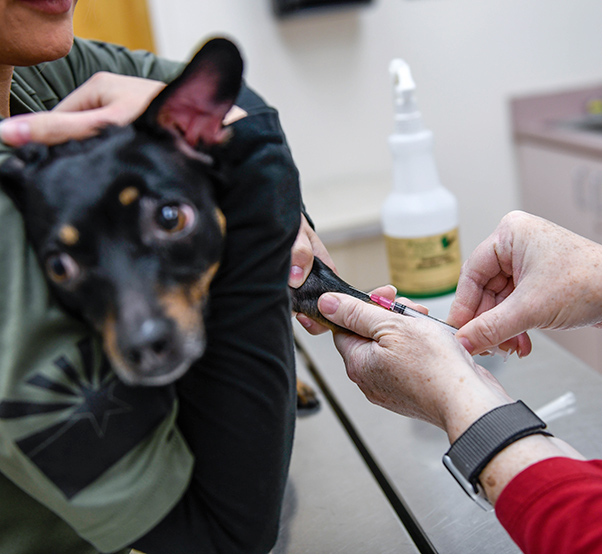
“We’ll inspect them once a year and make sure they’re healthy,” said Avci. “They have to get certified yearly.”
The clinic routes health certificates for individuals who are moving and are bringing their pets with them.
“There’s always a process involved,” said Kari Reinhart, Luke AFB Veterinary Services clinic operations assistant. “It’s almost always an international microchip and a rabies titer test that’s most important. Different countries have restrictions and regulations on what actions are needed for the health certificate. A certificate within 10 days is required before moving overseas.”
The clinic helps keep Luke member’s pets healthy, in turn keeping the troops mentally and physically prepared for anything thrown their way.
For more information, call the clinic at 623-856-6354.
